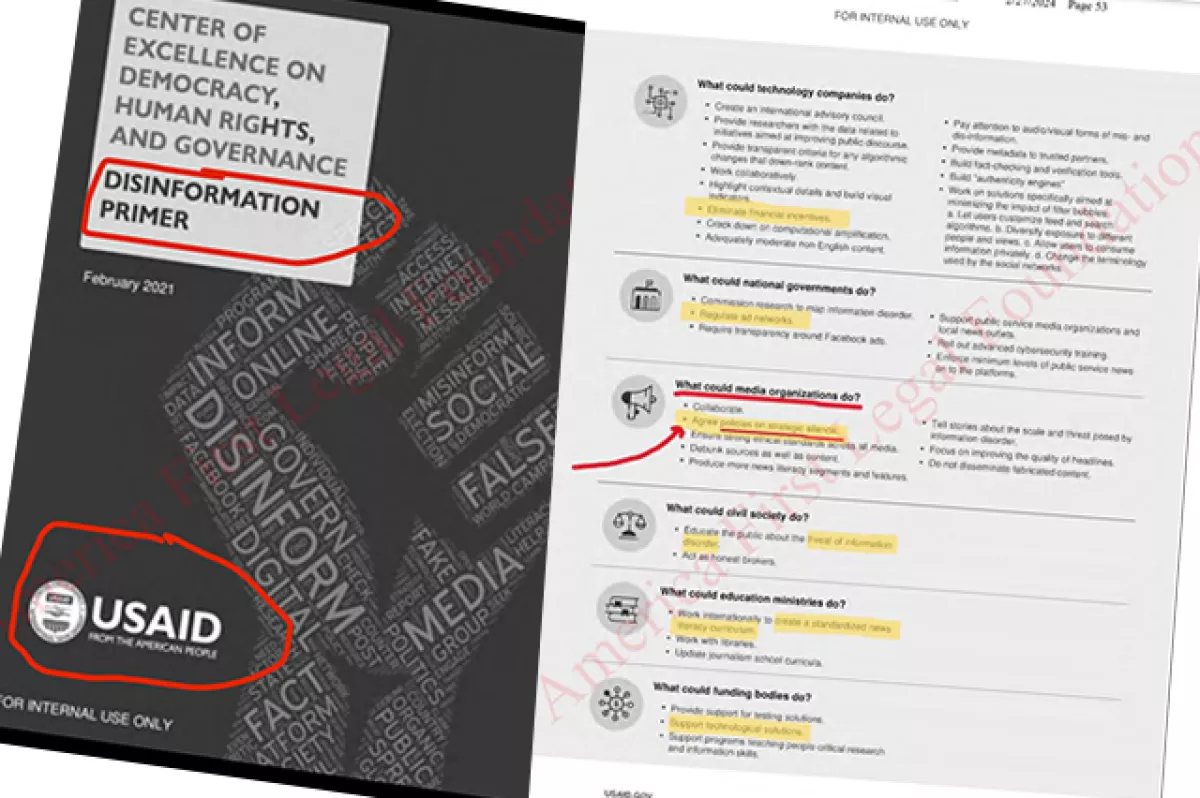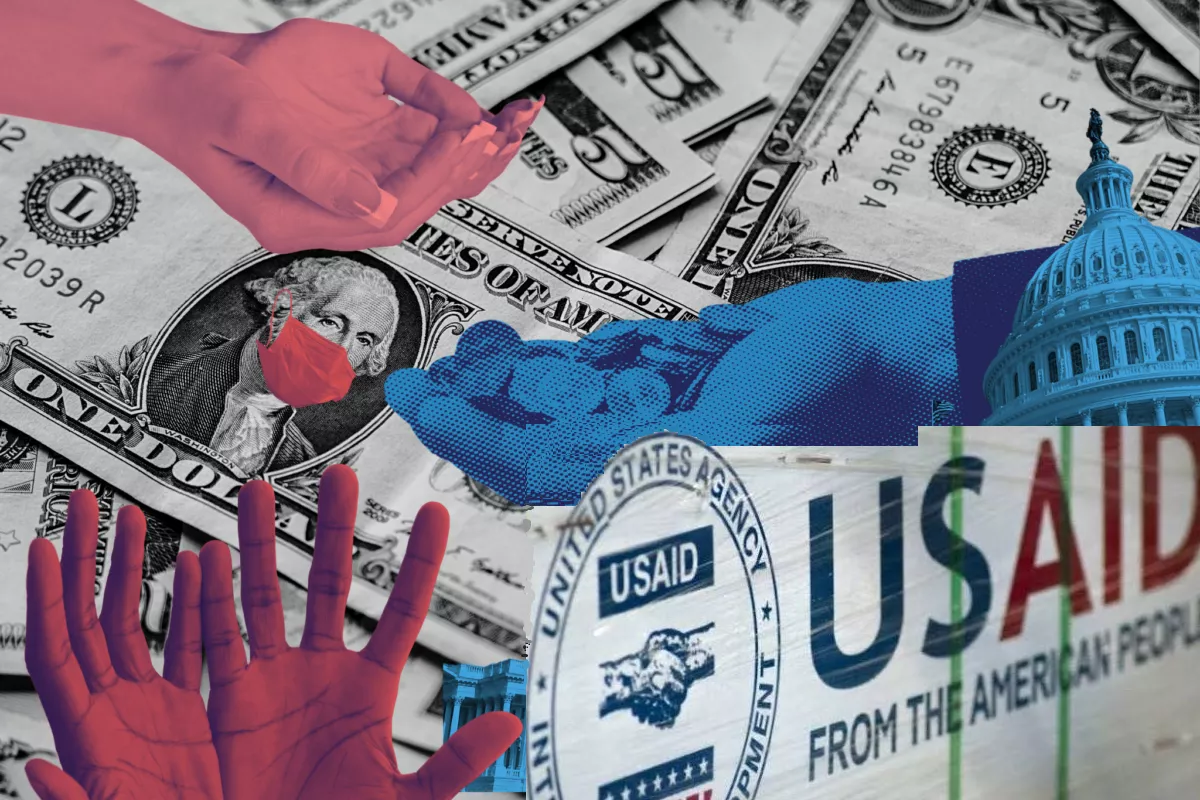A benevolent force or a monster in disguise? Unveiling USAID’s role in geopolitical games
The Sri Lanka Guardian published an article exposing the subversive activities of the United States Agency for International Development (USAID). Caliber.Az offers an in-depth analysis of the article for its readers.
The article critically analyzes the role of the United States Agency for International Development (USAID) in global geopolitical manipulation, calling out the agency’s interventions under the guise of promoting democracy and human rights. The writer argues that USAID's operations often undermine the very democratic principles it claims to support, exposing a pattern of covert political manipulation, exploitation, and interference in sovereign states. The term "ZunZuneo" (Cuban slang for the sound of a hummingbird) is used as a metaphor to highlight USAID’s covert and often insidious operations.
The Sri Lanka Guardian article introduces the ZunZuneo project as one of the prime examples of USAID’s methods of engagement. Originally branded as a platform for free expression in Cuba, ZunZuneo was covertly designed to track and influence Cuban citizens' political opinions and stir dissent against their government. The project used Cuban phone numbers without consent, thus demonstrating the agency’s willingness to manipulate populations for strategic ends. This case, the article argues, is a clear reflection of the agency's ulterior motives: to not empower individuals but control them.
The piece expands the discussion to other regions, highlighting USAID’s consistent role in exacerbating political instability and promoting regime change. In Venezuela, for example, USAID allegedly funded opposition movements to destabilize the government of Nicolás Maduro. Through financial support to media outlets, non-governmental organizations, and opposition groups, the agency attempted to further American geopolitical objectives, thus inflaming existing divisions within the country. This form of intervention is seen as contributing to Venezuela's already fragile state, rather than resolving the underlying political and economic issues.

In Ukraine, USAID’s activities were similarly controversial. The article points to USAID's substantial financial backing for civil society groups, non-governmental organizations, and media outlets during the Euromaidan protests.
The article does not limit its critique to Latin America and Eastern Europe but also discusses USAID’s interventions in the Middle East and North Africa, particularly in Egypt and Libya. In Egypt, USAID’s involvement in the 2011 revolution and its subsequent backing of various political factions played a role in destabilizing the country. Despite claims of promoting democracy, USAID’s activities contributed to the years of political chaos that followed the removal of Hosni Mubarak. In Libya, USAID’s role in supporting opposition groups is framed as a factor that exacerbated the nation's instability after the fall of Muammar Gaddafi.
In addition to its geopolitical activities, USAID has also faced criticism for engaging in unethical and exploitative practices, particularly in its humanitarian efforts. The article discusses several instances where USAID's operations have been implicated in scandals, including allegations of sexual abuse and exploitation in Sri Lanka and Haiti. The piece highlights how, in Sri Lanka, USAID affiliates were accused of sexual abuse, with the agency failing to hold perpetrators accountable. In Haiti, the agency’s financial mismanagement after the 2010 earthquake is cited, where aid intended for the Haitian people was allegedly diverted for political purposes, benefiting American contractors instead of addressing the needs of the local population. These instances of corruption and exploitation raise serious questions about the integrity of USAID's mission.
A central theme of the article is USAID's lack of accountability. The agency’s repeated failures to address its shortcomings, whether in cases of sexual abuse, financial mismanagement, or its geopolitical interventions, point to a broader issue of transparency and oversight. USAID's actions, the article contends, have often gone unchecked due to political expediency and bureaucratic inertia. This lack of accountability is seen as allowing the agency to continue its operations without meaningful reform or oversight, despite the evident harm caused by its interventions.

The article also touches on the relationship between USAID and the Central Intelligence Agency (CIA), raising concerns about the blurred lines between humanitarian aid and intelligence operations. The suggestion that USAID acts as a front for the CIA underscores the notion that the agency’s interventions may not always align with its public mission of promoting democracy and human rights. The CIA’s involvement with USAID is presented as a major factor that has skewed the agency’s operations towards advancing U.S. geopolitical interests rather than addressing the needs of the countries it operates in.
Critics of USAID, including renowned scholar Noam Chomsky, argue that the agency is a tool of American imperialism, designed to enforce U.S. interests under the guise of humanitarian aid. Chomsky’s critique of USAID’s record as a destabilizing force in the countries it targets is echoed by other scholars who point to the agency’s role in funding opposition movements, undermining democratic institutions, and promoting regime change. This criticism, the article suggests, is backed by the agency's own history of interventionism and its failure to achieve the democratic outcomes it purports to champion.
The article concludes by highlighting the need for reform within USAID. The agency’s unchecked power and lack of transparency have allowed it to operate with impunity, furthering U.S. imperialism and interventionism rather than the purported humanitarian goals. The call for greater oversight and accountability is framed as essential for restoring trust between the American public and their government. Until such reforms are made, the article warns, USAID will continue to operate as a shadowy force in global geopolitics, furthering the strategic interests of the U.S. at the expense of the sovereignty and well-being of other nations.








